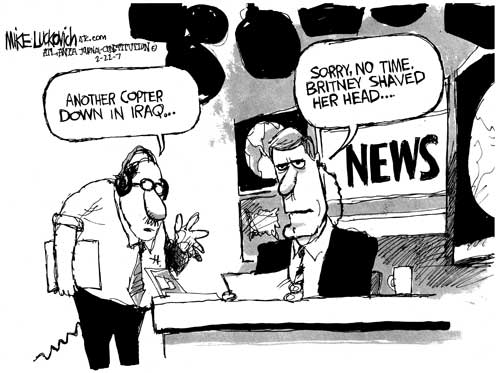 By walling up readers and luring away advertisers, the platform is putting the Fourth Estate in dire straits.
By walling up readers and luring away advertisers, the platform is putting the Fourth Estate in dire straits.
Traditional journalism faces a risk so severe that some are calling it the end of the Fourth Estate as we know it.
Hyperbole? Not when you look at a few key facts, as pointed out by Roy Greenslade in The Guardian.
Critics have already pointed to Facebook’s “trending topics” as evidence the social platform basically owns the news, acting in an editorial capacity rather than as a platform. That’s not the real problem, according to Greenslade.
“It has always been the case from the dawn of media that the controllers of news outlets – newspapers, TV and radio, online – make choices about what to publish and, more significantly, what not to publish,” he notes.
Others argue that Facebook’s algorithms create an “echo chamber” effect, feeding readers more of what they already like, and leaving little room for exposure to differing points of voice. While that’s certainly a problem, it’s not the primary issue, Greenslade points out, asking, “If you read, say, the Daily Mail or the Daily Mirror every day, are you not locked out from alternative views?”
The real issue as he sees it comes down to money, or more accurately, the lack of it. Users willingly give Facebook reams of personal information, which is used to sell highly targeted ads. Traditional media simply can’t compete with this kind of super-sophisticated targeting, and advertisers know it. This ad money is being pulled away from traditional media and feeding the FB machine.
Greenslade spells it out: “Facebook’s increasing dominance over advertising is causing the laying off of journalists, the people who produce the news that it transmits to its users.”
And this, he asserts, is what will finally bring down the legacy model of journalism that has served the public well for centuries.
“Before cynics shout about that not being a bad thing (while digital optimists assert that independent, and therefore better, journalism will arise in its place), think of the perils we face without a collective of organised, skilled journalists working for organisations large enough to hold power to account,” Greenslade continues.
“The Facebookisation of news has the potential to destabilise democracy by, first, controlling what we read and, second, by destroying the outlets that provide that material,” he concludes.
Meanwhile publishers find themselves terrified of Facebook, dependent on them for exposure, but hamstrung in their walled garden. Facebook’s in it for the money, pure and simple.
“One of the difficulties is, a lot of media companies feel Facebook has some moral obligation towards media, and it does not,” notes The Economist’s Paul Rossi speaking to Lucia Moses in Digiday. “You have to understand where they make their money, and don’t be surprised if that isn’t compatible with how media companies make money.”
They make money controlling the news, but without the social contract of traditional media outlets.
“When you make editorial decisions about what goes on your site, you are a media company,” Slate’s Keith Hernandez told Moses. “When you say it’s just an algorithm, it kind of dissociates them from what they are. It seems disingenuous. The world’s hardest problems can’t be solved by an algorithm.”
We’ve said it before: The news industry needs to take a deep, collective breath and wraps its head around preserving the value of the one thing it is extremely good at – creating exceptional news content. Give that away, and we all lose.

September 22, 2016, 8:04 am
February 22, 2017, 7:53 am
February 28, 2017, 7:37 am